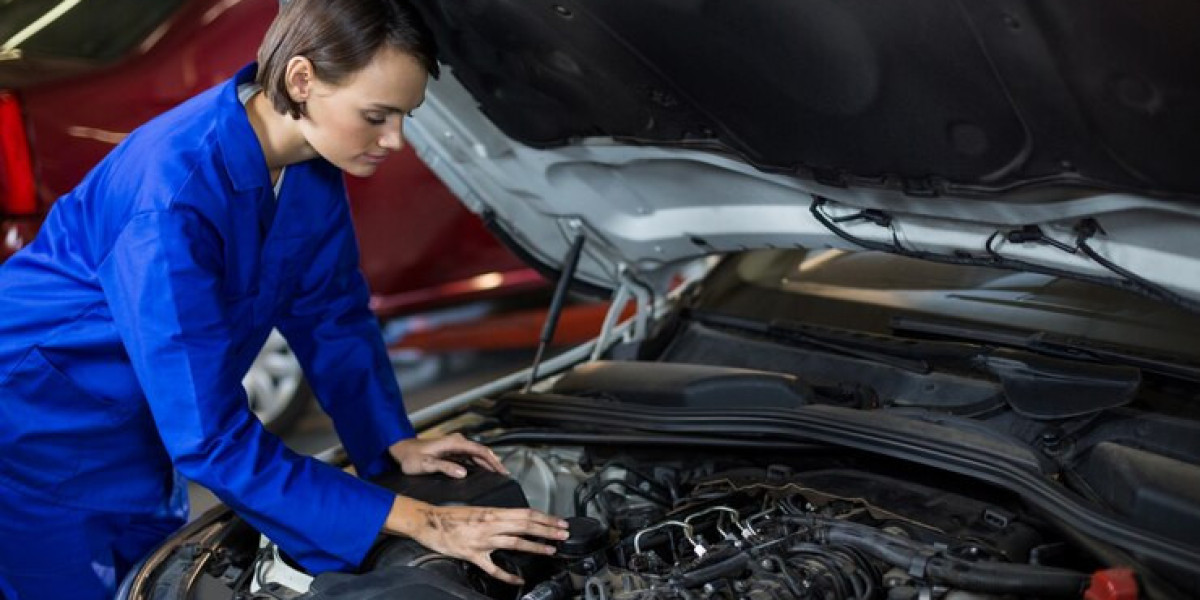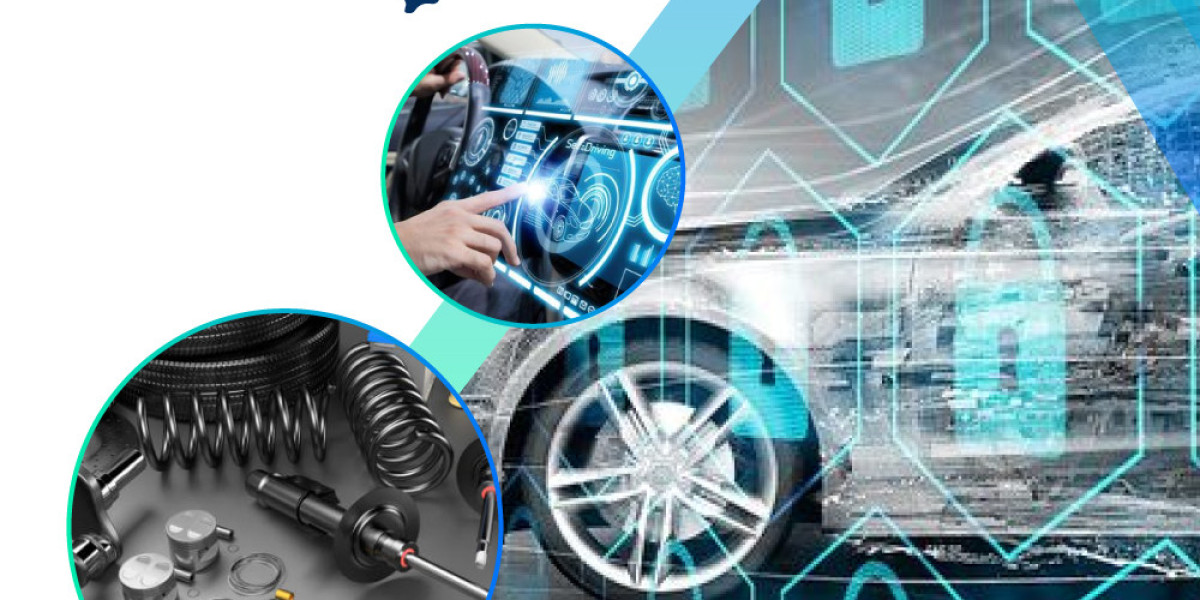Owning a car is a significant responsibility that requires diligent care and regular maintenance to ensure its longevity and performance. One crucial aspect of vehicle upkeep is Auto Car Maintenance. This encompasses various tasks and checks that, when performed regularly, can keep your car running smoothly and help prevent costly repairs down the road. In this comprehensive guide, we will explore the essential components of auto car maintenance, delve into the specifics of oil change services, and provide tips on how to keep your vehicle in top condition.
The Importance of Regular Maintenance
Regular maintenance is vital for several reasons. Firstly, it ensures that your car remains safe to drive. Regular inspections and maintenance checks can identify potential issues before they become significant problems, thus enhancing the safety of the vehicle. Secondly, consistent maintenance can improve your car's performance and fuel efficiency. A well-maintained car runs more smoothly and uses fuel more efficiently, saving you money in the long run. Lastly, maintaining your car can extend its lifespan, allowing you to get the most out of your investment.
Essential Components of Auto Car Maintenance
Auto car maintenance involves various tasks that address different aspects of your vehicle. Here are some of the key components:
- Oil Changes
- Tire Maintenance
- Brake Inspections
- Fluid Checks
- Battery Maintenance
- Engine and Transmission Care
Oil Changes
One of the most critical aspects of auto car maintenance is regular oil changes. Engine oil lubricates the moving parts of your engine, reducing friction and preventing overheating. Over time, oil can become contaminated with dirt and debris, losing its effectiveness. Regular oil changes ensure that your engine remains well-lubricated and functions optimally.
Tire Maintenance
Tires are the only part of your car that makes contact with the road, making their maintenance crucial. Regularly checking tire pressure, alignment, and tread depth can prevent accidents and improve fuel efficiency. Rotating your tires every 5,000 to 8,000 miles can also extend their lifespan.
Brake Inspections
Your car's braking system is vital for safety. Regular brake inspections can identify wear and tear on brake pads, rotors, and other components. Addressing brake issues promptly can prevent accidents and costly repairs.
Fluid Checks
Various fluids in your car, such as coolant, transmission fluid, and brake fluid, play essential roles in its operation. Regularly checking and replenishing these fluids can prevent overheating, transmission issues, and brake failure.
Battery Maintenance
A well-functioning battery is essential for starting your car and powering its electrical systems. Regularly checking the battery's condition and cleaning its terminals can prevent unexpected breakdowns.
Engine and Transmission Care
Regular engine and transmission maintenance, including replacing filters and checking for leaks, can ensure that your car runs smoothly and efficiently. Ignoring these components can lead to significant and costly repairs.
The Role of Professional Oil Change Services
While some car maintenance tasks can be performed at home, others, like oil changes, often require professional attention. Oil Change Services provided by professionals can ensure that the correct type of oil is used and that the job is done correctly.
Why Oil Changes are Crucial
Oil changes are crucial because engine oil degrades over time. As oil circulates through the engine, it picks up dirt, debris, and other contaminants. Over time, these impurities can cause the oil to lose its lubricating properties, leading to increased friction and wear on the engine's moving parts. Regular oil changes remove these contaminants and replace the old oil with fresh, clean oil, ensuring that the engine continues to run smoothly.
Choosing the Right Oil Change Service
When selecting an oil change service, consider the following factors:
- Reputation and Reviews: Look for a service provider with positive reviews and a good reputation in the community. Customer feedback can give you insight into the quality of their service.
- Type of Oil: Ensure that the service provider uses the correct type of oil for your vehicle. Different cars require different types of oil, such as synthetic, conventional, or high-mileage oil.
- Additional Services: Some oil change services include additional checks, such as inspecting the air filter, topping off other fluids, and checking tire pressure. These extra services can add value and convenience.
- Price: Compare prices among different service providers to ensure you are getting a fair deal. Keep in mind that the cheapest option is not always the best in terms of quality.
DIY Oil Change vs. Professional Oil Change
While it is possible to change your car's oil yourself, there are several benefits to using professional oil change services:
- Convenience: Professional services are quick and efficient, saving you time and effort.
- Expertise: Technicians have the knowledge and experience to identify potential issues that you might miss.
- Proper Disposal: Professional services handle the disposal of old oil in an environmentally friendly manner.
How Often Should You Change Your Oil?
The frequency of oil changes depends on several factors, including the type of oil used, your driving habits, and the manufacturer's recommendations. As a general rule, conventional oil should be changed every 3,000 to 5,000 miles, while synthetic oil can last up to 7,500 miles or more. Always refer to your car's owner manual for specific guidelines.
Tire Maintenance: Keeping Your Car Safe and Efficient
Proper tire maintenance is essential for safety and efficiency. Here are some tips for maintaining your tires:
Regular Tire Inspections
Inspect your tires regularly for signs of wear and tear, such as uneven tread wear, cuts, or bulges. If you notice any issues, have your tires checked by a professional.
Maintaining Proper Tire Pressure
Keeping your tires inflated to the manufacturer's recommended pressure can improve fuel efficiency, extend tire life, and enhance safety. Check your tire pressure at least once a month and before long trips.
Tire Rotation and Alignment
Rotating your tires regularly ensures even wear, which can extend their lifespan. Aligning your tires can prevent uneven wear and improve handling. Have your tires rotated and aligned according to your car's maintenance schedule or if you notice uneven wear or handling issues.
Replacing Worn Tires
Driving on worn tires can be dangerous. If your tires' tread depth is below the recommended level, it's time to replace them. Regularly check your tread depth using a tread depth gauge or the penny test.
Brake Maintenance: Ensuring Your Safety
Your car's braking system is critical for safety. Regular brake maintenance can prevent accidents and costly repairs. Here are some tips for maintaining your brakes:
Regular Brake Inspections
Have your brakes inspected regularly by a professional. This can identify issues such as worn brake pads, damaged rotors, or leaking brake fluid.
Replacing Brake Pads
Brake pads wear down over time and need to be replaced to maintain braking performance. If you hear a squealing or grinding noise when braking, it's likely time to replace your brake pads.
Checking Brake Fluid
Brake fluid is essential for the proper functioning of your braking system. Check your brake fluid level regularly and top it off if necessary. If you notice a drop in brake fluid level, have your system inspected for leaks.
Fluid Checks: Keeping Your Car Running Smoothly
Various fluids in your car play crucial roles in its operation. Regularly checking and replenishing these fluids can prevent issues and ensure your car runs smoothly.
Coolant
Coolant helps regulate your engine's temperature. Check your coolant level regularly and top it off if necessary. If you notice your engine overheating, it may be due to low coolant levels or a leak in the system.
Transmission Fluid
Transmission fluid lubricates and cools the components of your transmission. Check your transmission fluid level regularly and look for signs of contamination, such as a burnt smell or dark color. If you notice any issues, have your transmission inspected by a professional.
Brake Fluid
As mentioned earlier, brake fluid is essential for your braking system. Regularly check your brake fluid level and top it off if necessary. If you notice any issues, have your braking system inspected.
Power Steering Fluid
Power steering fluid helps make steering your car easier. Check your power steering fluid level regularly and top it off if necessary. If you notice difficulty steering or a whining noise when turning the wheel, it may be due to low power steering fluid or a leak in the system.
Battery Maintenance: Ensuring Reliable Starts
A well-maintained battery is essential for starting your car and powering its electrical systems. Here are some tips for maintaining your battery:
Regular Inspections
Inspect your battery regularly for signs of corrosion or damage. Clean the battery terminals to prevent corrosion, which can impede the flow of electricity.
Checking the Charge
Use a voltmeter to check your battery's charge regularly. If your battery's voltage is low, it may be time to replace it. Most car batteries last between 3 to 5 years, but this can vary depending on driving conditions and maintenance.
Avoiding Short Trips
Frequent short trips can prevent your battery from fully charging. If possible, combine short trips into one longer trip to give your battery a chance to recharge fully.
Engine and Transmission Care: Keeping Your Car Running Smoothly
Proper engine and transmission care is essential for your car's performance and longevity. Here are some tips for maintaining these critical components:
Regular Engine Inspections
Have your engine inspected regularly by a professional. This can identify potential issues, such as leaks or worn components, before they become significant problems.
Replacing Air Filters
Air filters prevent dirt and debris from entering your engine. Over time, they can become clogged, reducing your engine's efficiency. Replace your air filters regularly according to your car's maintenance schedule.
Checking for Leaks
Regularly check your engine and transmission for leaks. If you notice any fluid leaks, have your car inspected by a professional to identify and address the issue.
Following Your Car's Maintenance Schedule
Your car's owner manual provides a maintenance schedule that outlines when to perform various maintenance tasks. Following this schedule can help ensure that your engine and transmission remain in good condition.
Conclusion: The Benefits of Consistent Auto Car Maintenance
Consistent auto car maintenance is essential for the safety, performance, and longevity of your vehicle. By performing regular checks and maintenance tasks, you can prevent costly repairs, improve fuel efficiency, and ensure that your car remains safe to drive. Whether you choose to perform maintenance tasks yourself or rely on professional services, staying on top of your car's maintenance needs is an investment in its long-term health and performance.
In particular, oil change services play a crucial role in maintaining your engine's health. Regular oil changes remove contaminants and ensure that your engine remains well-lubricated, reducing wear and tear and preventing overheating. By choosing the right oil change service and following your car's maintenance schedule, you can keep your engine running smoothly and extend the life of your vehicle.
Remember, your car is a significant investment, and taking care of it through regular maintenance can help you get the most out of that investment. Whether it's checking your tires, inspecting your brakes, or ensuring your fluids are topped off, every maintenance task contributes to the overall health and performance of your vehicle. Stay proactive with your auto car maintenance, and enjoy the peace of mind that comes with driving a well-maintained car.








